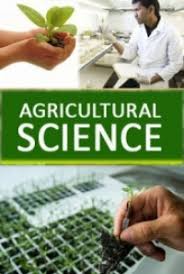ESSENCE OF MOTIVATION ON STUDENTS’ ACADEMIC PERFORMANCE IN AGRICULTURAL SCIENCE IN SECONDARY SCHOOLS
₦10,000.00 ₦3,000.00
Description
CHAPTER ONE
1.0 INTRODUCTION
Agriculture is defined as the cultivation of land for the production of food for man, feed for animals and raw materials for our industries. It plays an important role in the life of an individual as it provides the basic necessities of life, food, clothing and shelter. Agriculture is one of the professions that man engaged in since the start of age. As a result of its importance to the survival of human race, its practices will continue from generation to the yet unborn.
Agriculture was the backbone of the Nigerian economy before the advent of oil. It remains the largest contribution to the Nigerian economy accounting for over 38 percent of the GDP and a key sector in the country’s reform process. The sector feeds the Nigerian population and contribution to exports; it provides raw materials and serves as a catalyst for the development of the industrial sector. As the employer of labour in the economy, it leads in alleviating poverty.
This sector accounted for 88 percent of non-oil foreign exchange earnings. It is from agriculture and particularly from agricultural exports that the economy receives it principal stimulus to economic growth.Until the advent of oil, trade in cash crops such as cocoa, groundnut, rubber, cotton and palm produce accounted for much of the country’s foreign exchange earnings. Since the oil boom decline set in, agricultural machinery supply was left solely in the hands of profit seeking middlemen which play little attention to farming.
However, agriculture is relegated due to the social and psychological problem of being called a farmer. Many people like white collar jobs, they like to enjoy social amenities enjoyed in the Urban area such as electricity, pipe-borne water, good road, health care services etc. People because of all these amenities run away from the farm.
Apart from this, farmers in the third world countries or less developed countries haveshortage of capital to introduce the mechanized farming system. The problem of mass failure in agricultural science probably due to lack of interest in the subject or poor facilities in school and inadequate well-trained teacher has also contributed to the current state of agriculture in Nigeria.
Agriculture and agricultural scienceare often confused. However, they cover different concepts. Agriculture is the set of activities that transform the environment for the production of animals and plants for human use. Agriculture concerns techniques, including the application of agronomic research.Agronomy is research and development related to studying and improving plant-based agriculture.
Agricultural sciences howeverare sciences dealing with food and fibre production and processing. They include the technologies of soil cultivation, crop cultivation and harvesting, animal production, and the processing of plant and animal products for human consumption and use.Agricultural science began with Gregor Mendel‘s genetic work, but in modern terms might be better dated from the chemical fertilizer outputs of plant physiological understanding in 18th-century Germany. It is offered as a subject in secondary schools to prepare students and arouse their interest for agriculture. Poor performance in this area is therefore a bad sign to what would be expected of agriculture in the country. Many students have now developed little interest in the subject and even run away from it because they believe choosing agricultural science as a career will not earn them a great and promising future.
In order to make students develop more interest in this particular subject there is need for motivation. The word motivation is derived from a word “movere” which means to move into action. This word is what initiates and sustains a student involvement in the act of learning. To a large extent it determines the direction and efficiency of his learning.
Furthermore, there is the cry that the standard of education is rapidly falling most especially in agricultural science. The government, the teachers, and the parents as well as the students are not left out of the blame about the falling standard of education. To be able to solve these problems we have to look into how to remove it causes.
All these afore mentioned factors eventually either directly or indirectly results to poor motivation on the path of the student to learn or poor learning outcome and an attempt to put an end to these menaces in turn motivates the students to learn thereby improving the learning outcome and reviving the falling standard of education. Motivation is therefore a panacea to the current poor performance of students in agricultural science and an antidote to the falling standard of education in general.
1.1 STATEMENTOF THE PROBLEM
It is a common practice seeing students sit for examination most especially the Senior School Certificate Examination. The question that comes to mind is that are these students actually performing well? Does it really mean that if there are no leakages of examination question papers or answers, these students would not come out with a good result?
The answers to these questions are not far-fetched. If students are allowed to take exams naturally without assistance coming from any angle, they will perform woefully. In order to save this kind of situation, they result to engaging in all forms of examination malpractices. But something must have been responsible for this problem. There must have been a missing gap somewhere. There must be solutions to the problem of falling standard of education.
The factors responsible for the falling standard of education have been grouped under the following headings: government, teachers, parents, students and inspection (of school and teacher by authorized agent). If the first three and the fifth one is tackled, no meaningful result can be achieved when the student is not considered in the problem-solving approach. However, their impact would be felt from the way they affect the student. They could arouse the interest of the student and motivate him to learn.
When the student is motivated to learn, he would put up a better performance and this will in turn help improve the standard of education. This study therefore provides a means to assess how well motivation can help solve the educational problems or challenges facing Secondary School Students in Oyo State, taking five Schools in Ibadan North Local Government as case studies.
1.2 PURPOSE OF STUDY
The main purpose of this study is to determine the essence of motivation on student’s academic performance in agricultural science in secondary schools in Oyo State. Effort will also be made to identify the impact of motivation on student’s academic performance.
This study will examine how the government, teachers as well as parents view the impact of motivation on student’s academic performance, i.e. does it have positive or negative impact on the student performance?
It will further examine how absence of motivation increases the mass failure especially in agricultural science in Secondary School Certificate Examinations and failed to develop students towards their professional ambition.
1,3 SIGNIFICANCE OF THE STUDY
This study would go a long way to help students in school to be more serious at their studies and pass their examination with good grades.
Teachers as well will intensify their efforts in passing ideas, knowledge, skills, attitudes, beliefs and feelings to students so as to bring about changes in them.
It will also allow the parents to set their priority right on their children education.Knowing fully that their children would be left behind after they might have gone to a journey of no return, they would not look for money and power but the educational advancement of their children will be of paramount importance to them.
1.4 SCOPE OF THE STUDY
The study will be carried out in Ibadan North Local Government of Oyo State, Ibadan.
The selection of both the students and the schools will be by random sampling from some selected schools in the Local Government.
1.5 LIMITATION
This study will be restricted to the importance of motivation on student’s academic performance in agricultural science in Secondary Schools in Oyo State in Ibadan.
It will cover some Secondary school in the area purposely to know whether academic performance will be influenced by motivation from teachers, parents and the government.
It will look at five Secondary schools in the area, which will be a representative sample of the whole Ibadan North Local Government and Oyo State in general.
1.6 RESEARCH QUESTIONS
The following research questions will be useful for proper analysis of the topic.
- What are the factor militating against good performance of students in the Secondary School Certificate Examinations?
- Are those teaching agricultural science really qualified for the job?
- What motivational techniques are used to stimulate student’s interest in agricultural science?
- Are there any differences between male and female performances in agricultural sciences?
- Do students whose parents belong to upper class perform better in school than those whose parents belong to lower class?
The following three hypothesis can therefore be formed:
H1: Those teaching Agricultural Science are not qualified.
H2: There are no differences between male and female performances in agricultural sciences.
H3: Students whose parents belong to upper class do not perform better in school than those whose parents belong to lower class
1.7 DEFINITION OF TERMS
From the topic of this research “Essence of Motivation on students’ academicperformance in academic performance in agricultural science in secondary Schools in OyoState,” the researcher will have to defined the following terms or concepts of the topic.
(1) Motivation: Egar (1974) defines motivation as the condition responsible for variations in the intensity, quality and direction of an ongoing behavior.
(2) Agriculture: Agriculture is defined as the cultivation of lands for the production of food for man, feed for animals and fibre or raw materials for our industries.
(3) Science: branch of knowledge requiring systematic study and method especially dealing with substances, life and natural laws. (Advanced learners Dictionary)
(4) Students: Boy or girl in College or University. (Oxford Secondary University)
(5) Academics: Of a College or University Scholarly or theoretical interest only. (Advanced learners Dictionary).
Of Schools, Colleges, Universities, learning or teaching. (Oxford Secondary Dictionary)
(6) Performance: Carry into effect; go through a function (Advanced learner Dictionary). Or
Do a piece of work that one has been told to do and that is not easy. (Oxford Secondary Dictionary)
(7) Education: Education is the preparation of people for life to be led. Awolola (1986).
Rangochekpe (2000) described education as the total process of human learning by which knowledge is imparted, facilities trained and skills developed.
(8) Secondary Education: Secondary Education refers to the form of education children receive after primary education and before the tertiary stage. (National Policy on Education)







Reviews
There are no reviews yet.